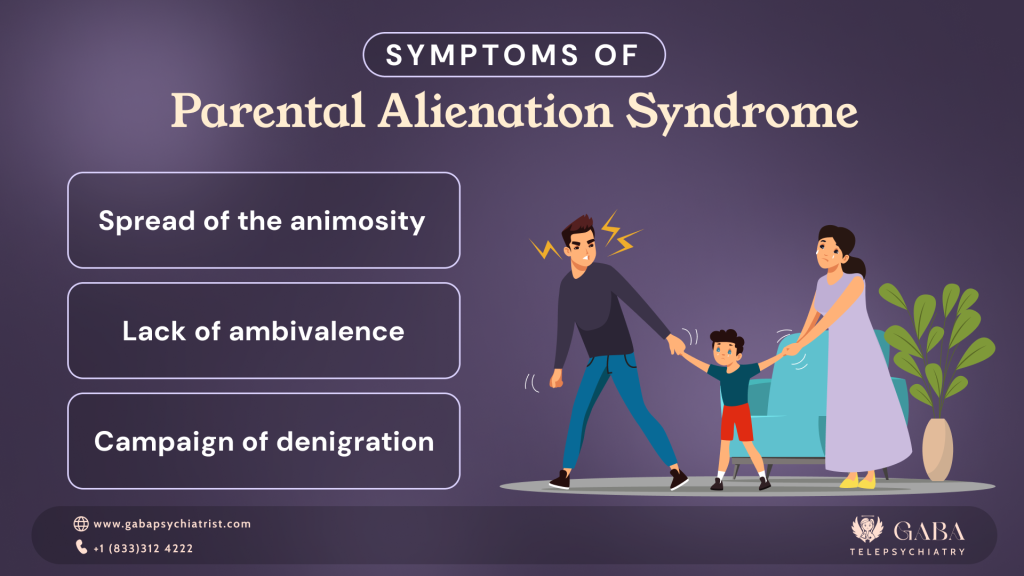
Parental alienation is when one parent influences a child or children to disrespect, discard, or despise the alienated parent. Often children are made to feel guilty for wanting a relationship with the alienated parent or feel they have to choose sides. Otherwise, they are made to feel they are betraying the alienating parent.
Parental alienation is a form of child abuse and can have long-term psychological effects on children and alienated parents.
Alienation most commonly occurs following toxic divorce and custody battles. However, it is often found that alienation begins long before separation or divorce, as parents ‘prep and coach’ children to disparage the other parent to assist their custody case.
Unfortunately, parental alienation is often unrecognized in family court, so there is little opportunity for legal recourse for the alienated parent. Parental alienation evaluations are hard to obtain and expensive.
Methods of alienation include:
– Repeatedly badmouthing one parent to the children
– Making up false allegations of physical abuse
– Making the children feel guilty or indecently punishing them for wanting to see the alienated parent
– Rewarding cruel behaviors towards the alienated parent with approval and privileges
Parental alienation can even lead to alarming behaviors in children, which is called parental alienation syndrome.
Parental Alienation Syndrome is a term coined by Dr. Richard Gardner in the 1980s to describe a specific psychological syndrome that could develop in children subjected to parental alienation.
Symptoms of Parental Alienation Syndrome are:
1. A campaign of denigration: The child constantly defames or criticizes the alienated parent unreasonably.
2. Weak, absurd, or frivolous rationalizations for the deprecation: The child gives superficial or frivolous reasons for a lack of desire to be with the unfavored parent.
3. Lack of ambivalence: In the child’s perspective, the qualities of the unfavored parent are absolutely negative.
4. The independent-thinker phenomenon: The child claims that their resistance to seeing the unfavored parent is not the result of the other parent’s manipulation, but their own thoughts and interpretation of events.
5. Reflexive support of the alienating parent in the parental conflict: During the parents’ conflict, the child is automatically supportive of the alienating parent.
6. Absence of guilt over cruelty to and/or exploitation of the alienated parent: The child expresses hateful comments on the targeted parent with no guilt.
7. The presence of borrowed scenarios: The child believes in stories in which the targeted parent has been misrepresented.
8. Spread of the animosity: The feelings of hatred and animosity have spread to the friends and/or extended family of the alienated parent.
If the child is exhibiting the following signs towards a parent, the situation needs to be addressed immediately.
– Asking the parent not to attend activities they are expected to participate in.
– Requesting the parent to avoid contacting important people in their lives, such as friends, teachers, and classmates.
– Exhibiting argumentative behavior towards the parent.
– Struggling to recognize any positive qualities or actions on the parent’s part.
– Responding with defiance to the parent’s requests or statements.
Being subject to cruel treatment by their children can leave the alienated parent feeling hopeless and even suicidal.
Exposure to toxic stress makes the child feel depressed, anxious, and at times suicidal.
Often a child’s expressed desire to live exclusively with one parent is accepted at face value.
If children remain with an alienating parent, they may become entirely dependent on that parent, who could exert control over their thoughts and emotions. They may also experience trust issues or adopt lying, cruelty, power games, and splitting as relationship behaviors, which transcend into their adult relationships.
Children experiencing parental alienation often struggle to understand what is wrong, and overcoming it typically requires considerable effort and long-term therapy.
Previous generations had little resources, and it was common for the alienated parent to lose contact with children altogether. Usually, they would give up and either start a second family or emotionally detach from their child or children.
It is possible to prove parental alienation in court through careful review of court motions, text messages, emails, witness accounts, interviewing the children, and reviewing therapy notes.
At the least, opening up the discussion will alert the judge and guardian to take steps towards increasing parenting time, starting unification therapy, and fostering a relationship with the alienated parent.
Psychiatrists at Gaba Telepsychiatry, a New York-based practice, are now providing help for parents and children affected by parental alienation.
Dr. Reddy, medical director at GABA Telepsychiatry shares, “I started parental alienation work quite by accident, but the demand was overwhelming and the practice just grew. Uniting parents and children wherever possible and helping them heal wounds is one of the most rewarding aspects of my work.”
To learn more about Parental Alienation and seek treatment from a Board-Certified Online Psychiatrist, visit https://gabapsychiatrist.com/parental-alienation/ or call +1(833)312-4222.
Media Contact
Company Name: GABA Telepsychiatry
Contact Person: Sakshi Aneja
Email: Send Email
Country: United States
Website: https://gabapsychiatrist.com/
